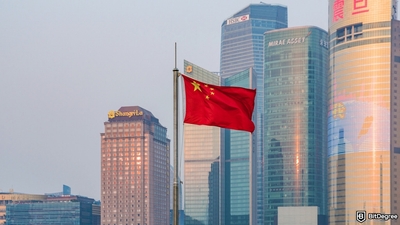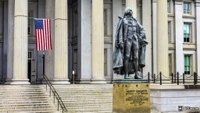Free Airdrop Season 7 is LIVE! Answer fun questions or do simple tasks to earn rewards from the $30K BitDegree prize pool. Participate Now ! 🔥
Tether CEO Counters Ripple's Claims About US Regulatory Actions
Key Takeaways
- Tether CEO Paolo Ardoino refutes Ripple CEO Brad Garlinghouse's claims of US targeting Tether;
- Ardoino highlights Tether's robust compliance, noting its proactive collaboration with global law enforcement agencies;
- Ripple's criticisms may be seen as competitive tactics ahead of their planned stablecoin launch.
Paolo Ardoino, Tether's CEO, defended the company in response to Ripple CEO Brad Garlinghouse's comment that Tether, as the issuer of USDT, faced scrutiny from US regulators.
Ardoino took to X to address these claims, arguing that Garlinghouse's remarks were particularly ironic given Ripple's own legal issues with the US Securities and Exchange Commission (SEC).

Did you know?
Subscribe - We publish new crypto explainer videos every week!
What Are Oracles in Crypto? (Beginner Friendly Animation)


In a podcast, Garlinghouse stated there was a "100% chance" of a crisis in crypto, possibly involving Tether. Some viewed this as anticipating tougher regulations, while others saw it as strategic positioning ahead of Ripple's planned stablecoin launch in 2024.
Ardoino discredited this claim citing Tether’s proactive compliance strategy. He pointed out that Tether has not only dominated the market but also maintained a record of stability and adherence to regulations, especially noted in its extensive use in the banking sectors of developing countries.
Ardoino further detailed Tether's cooperation with global law enforcement, specifically highlighting the blocking of over $1.3 billion in assets related to illegal activities like scams and money laundering. The CEO also criticized other stablecoins for only reacting to judicial orders, which he suggested might delay the process of addressing such criminal activities.
He emphasized the efficiency of Tether's compliance measures, saying:
USDT proved over time to have strong price stability, highly liquid reserves, top tier custodians, and profound compliance.
This incident not only illustrates the intense rivalry among major cryptofirms but also underscores the importance of regulatory compliance.
Tether's commitment to regulatory compliance was also evidenced by its announcement of plans to freeze wallets that use USDT to bypass US sanctions on Venezuelan oil exports in April.























